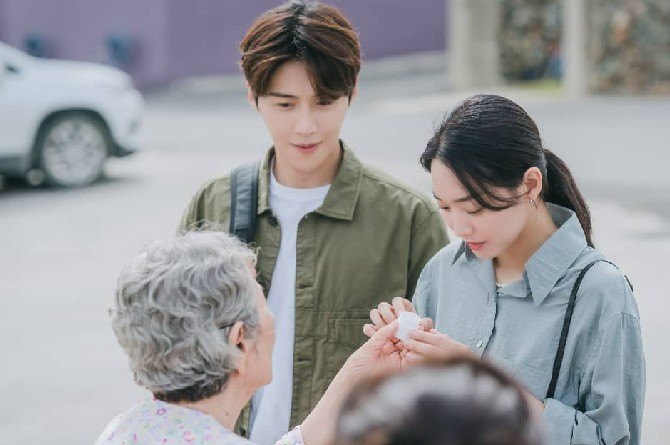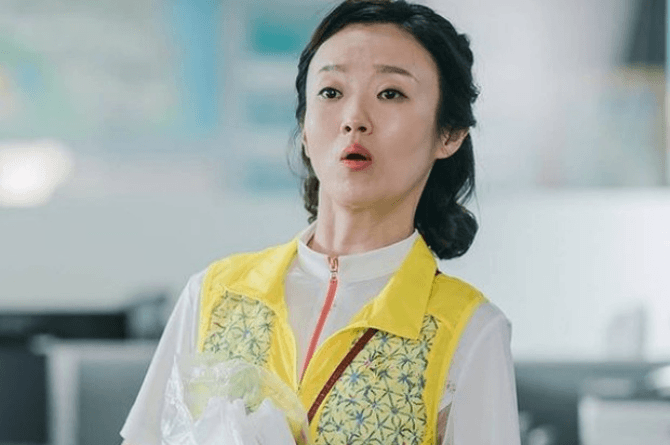Have you watched Hometown Chachacha on Netflix yet? Here are some important lessons we got from the popular K-drama.
In this article, you’ll read:
- Why Pinoys fell in love with Hometown Chachacha
- Life lessons we’ve learned from watching the series
This pandemic taught us Pinoys to slow down and reflect on how we’re living our lives, which is probably why we’re so smitten by Netflix’s latest popular K-Drama, Hometown Cha-cha-cha.
The new Korean series starring Kim Seon Ho (our favorite good boy from Start Up), and Shin Min-a (from Oh My Venus), has been in the top chart of Netflix Philippines for a few weeks now.
Filipinos would definitely fall in love with the premise – it’s about a big city girl moving to a small province and falls for the charming village boy who shows her what life is really about.
It’s close to our hearts as it features quirky and lovable characters and revolves around family. It misses the teleserye style of melodramatic and unbelievable plot twists, which is refreshing because focuses on giving viewers a slice of life, showing a positive side to humanity. K-Drama fans even coined it as the best healing drama of the year.
Aside from being so entertaining and kilig-inducing, the show also taught us a lot of valuable life lessons. Here are some of them:
7 Life lessons from watching Hometown Chachacha
(Warning: Spoilers ahead)
1. Money and success are not the only sources of happiness in life.

Hye Jin (Shin Min-a), a dentist from Seoul, is a strong, independent woman who lived an upscale lifestyle and liked buying luxury items for herself.
There’s really nothing wrong with spoiling yourself once in a while, but like what Captain Hong Du Shik (Kim Seon Ho) taught her,
“Money and success aren’t the only valuable things in life.”
As this pandemic showed us, fame and fortune can make us blind to the things that really matter. For Captain Hong, those are happiness, self-satisfaction, world peace and love.
Having money can make you happy, but not as fulfilled as having good health and being surrounded by the people that you love.
2. Treat everyone with empathy and respect.

In this drama, Hong Du Shik is described as a charming jack of all trades, but he is also described as a wise figure in the village, probably because of the hardships he has gone through at an early age.
“Life isn’t so fair for all of us. Some spend their whole lives on unpaved roads, while some run at full speed only to reach the edge of a cliff,” he said.
Before you judge other people, always remember to put yourself in their shoes first. We couldn’t summarize this point any better without mentioning this popular quote,
“Be kind, for everyone you meet is fighting a hard battle.”
3. It’s okay to ask for help and rely on others sometimes.

Being independent and strong doesn’t mean you don’t need other people. You don’t have to refuse other people into your life.
Regardless of how capable you are, it’s nice to have someone who always has your back, especially when life is at its lowest. Sometimes, the people we think are weak are the ones who are with us in our troubles.
And wouldn’t it be awesome to have someone to share your life, your highs and lows with? Which brings us to our next point …
4. Problems are part of any relationship.
In the show, one of the characters likened relationships to a shoe. What he said was funny, but it also makes great sense:
“Nothing is easy at first, you know. Whether it’s wearing shoes or being in a relationship.”
Sometimes, life gives us unexpected opportunities to make great strides. But to do that, you have to take the first step. At times, the first step is even the hardest. The important thing is to keep going and not give up in spite of the falls and the setbacks.
5. It’s okay to admit mistakes.

Like we mentioned earlier, problems, disagreements are part of being in any relationship. What’s important is how you handle these struggles. One of the things we should learn is to admit our faults and apologize.
Captain Hong taught Hye-Jin this important lesson with a milk analogy.
“If you can’t pick up spilled milk, you should at least apologize to them for spilling the milk, rather than avoiding them.”
This is something we can learn and teach our children as well. It’s okay to own up to your mistakes and say sorry. As we say in Filipino, “Wala namang mawawala.” It may mean that you have flaws, but it could also mean that you have a conscience and you’re growing.
READ MORE:
Red light, green light: 11 life lessons from Netflix’s Squid Game
7 lessons na matutunan ng mag-asawa pagkatapos manood ng A World of Married Couple
11 reasons why you and your child should watch Vivo on Netflix
6. Praise your child’s efforts over his achievements.
In one of the episodes of Hometown Chachacha, when one of the kids won a contest, his mom took him to a restaurant to celebrate. However, instead of saying that this was to celebrate her son’s success, she said that the celebration was aimed at appreciating his hard work.
As parents, we are happy when our kids get good grades or succeed at something. But it’s important to remember that more than the medals and the recognition, we should focus on their efforts and the work they put on into something.
7. Being a good parent means taking care of yourself.

It’s not difficult for us parents to give our children, our spouse, our family the love and care that they need. But sometimes we forget that to be at our best in doing that, we also need to take care of ourselves.
In the show, it was Hye-Jin who uttered these lines:
“Do you know what it means to be a good parent? It’s staying healthy for a long time. They shouldn’t endure pain to save money for their children. They should take care of themselves. Do you get it?”
It’s easy to put ourselves last in our long list of priorities, but remember, self-care is not being selfish. In fact, keeping ourselves healthy (physically and mentally) is vital in our kids’ well-being and survival. Because, what will happen to them if we become ill? Who will take care of them? Always keep those in mind when you’re tempted to put yourself last.
Tell us what you learned from watching Hometown Chachacha on the comments section!
Translated with permission from theAsianparent Indonesia
Additional points by Camille Eusebio
 Money Tips
Money Tips Building a BakuNation
Building a BakuNation Becoming a Parent
Becoming a Parent Ages & Stages
Ages & Stages Parenting
Parenting Health & Wellness
Health & Wellness Education
Education Lifestyle Section
Lifestyle Section Become a VIP
Become a VIP Press Room
Press Room TAP Recommends
TAP Recommends Shopping
Shopping Community
Community Rewards
Rewards VIP Parents
VIP Parents
